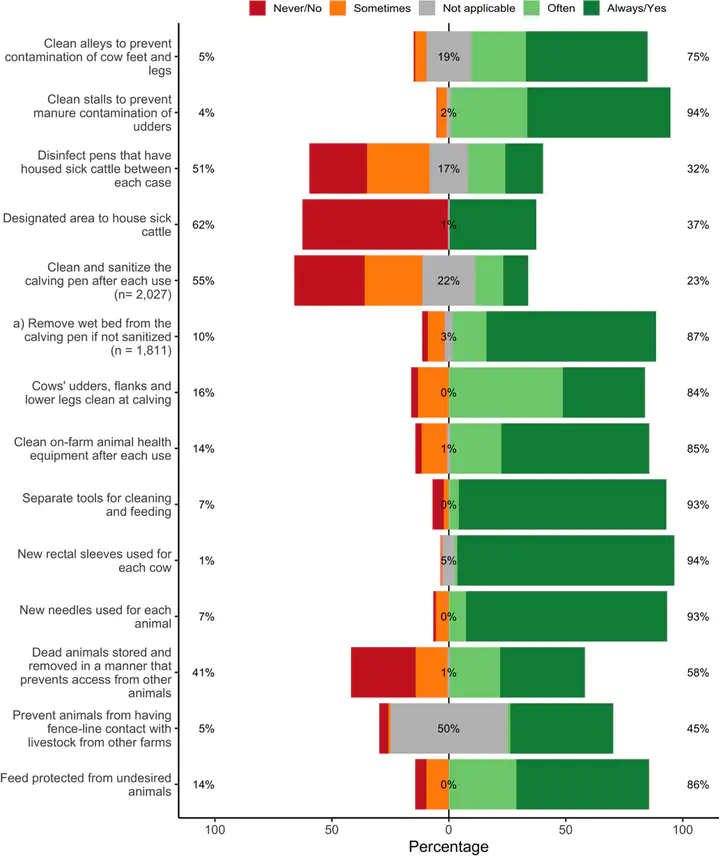Biosecurity adoption in Québec dairy farms. Results from a risk assessment questionnaire analyzed using conventional and unsupervised artificial intelligence methods
 Figure reproduced from Lima-Campêlo , Journal of Dairy Science
Figure reproduced from Lima-Campêlo , Journal of Dairy Science
Abstract
This study documents the current state of biosecurity on dairy farms in Québec following the implementation of a mandatory biosecurity risk evaluation that was part of the proAction accreditation program developed by Dairy Farmers of Canada. Using a cross-sectional design, 3,825 risk assessment questionnaires completed between 2018 and 2021 were extracted from Vigil-Vet database, which is a software used by veterinarians for conducting the proAction risk assessment. Our results indicated that mastitis was the disease of most concern for most dairy farmers (40%). Moreover, given that only 10% of the 2,237 dairy farmers who acquired animals adhered to quarantine practices, there seems to be a need for improved implementation of biosecurity measures aimed at restricting the introduction of diseases when introducing new animals. Conversely, cleaning stalls and health equipment were adequately addressed by 95% and 86% of dairy producers, respectively. Three “biosecurity” clusters were identified among 3,581 farms (1) Cluster 1 included farms with good management of sick animals; (2) Cluster 2 included farms with good management of young animals; and (3) Cluster 3 included farms with poor management of sick animals and young animals.